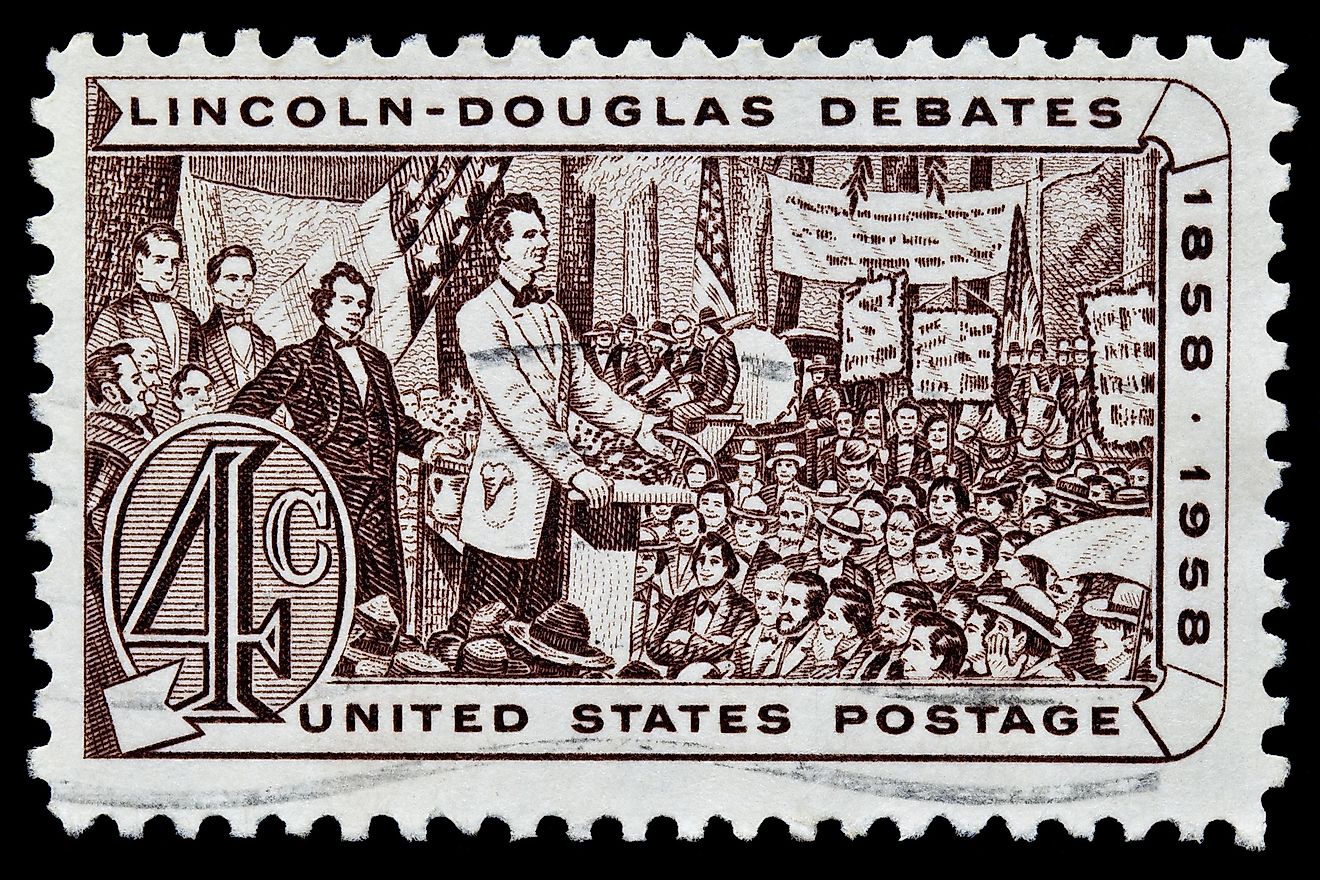Major Issues In The Lincoln Douglas Debates

- The seven debates between Abraham Lincoln and Stephen A. Douglas occurred in each of the nine congressional districts in Illinois, United States.
- The central matter in the debates was the extension of slavery and racial equality.
- Douglas' controversial answer on the Dred Scott decision became known as the Freeport Doctrine.
The Lincoln Douglas debates are the debates between Abraham Lincoln, the 16th president of the United States (who was the Republican Party candidate at the time), and Stephen A. Douglas, the leader of the Democratic Party.
The seven debates took place in each of the nine congressional districts in Illinois, during the United States Senate elections of 1858. The central issue discussed in all seven of the debates was slavery in the United States. Lincoln Douglas debates are considered to be one of the most important and influential debates in the history of the United States.
Let's Get Ready To Rumble!
Slavery was the central theme discussed in all of the debates, but the debates also discussed many other important issues that, to this day, have significant political weight. At the beginning of the debates, Lincoln said that the debate about slavery would not end until slavery was either extended to every state and territory of the United States or erased altogether.
Lincoln took the moral high ground by declaring slavery as a violation of the Declaration of Independence and its statements about the equality of all men. However, he also made it clear that he had no interest in interfering with slavery in the South. Also, he assured the northerners of his opposition towards the political and social equality of races.
Stephen A. Douglas agreed with him on the later, but he did not agree with Lincoln's statements about how the United States, sooner or later, must become either all slave or all free country. Douglas also disagreed about Lincoln's morality argument and pointed out how the Founding Fathers intended that decisions about slavery should be decided by each territory for itself. Many of the Founding Fathers were slaveholders themselves, a point that Douglas did not fail to bring up in the debates.
Lincoln's Trap And The Dred Scott Decision
Unlike Lincoln, he was adamant in the idea of localized politics, a power that comes from the desires of the people. However, Douglas lost the appreciation of the South when Lincoln set a trap during a debate in Freeport by asking him about the territorial right of restricting slavery in the context of the Dredd Scott decision.
Douglases position enabled settler in the U.S. territory to manage to get around the Dred Scott decision (simply put, slaves who had resided in a free state were not entitled to freedom as postulated by the Missouri Compromise because it was declared unconstitutional). His response to that issue is also known as the Freeport Doctrine.
The Aftermath Of The Lincoln Douglas Debates
Abraham Lincoln lost the election (Douglas won with 54 votes in his favor, and Lincoln had 46), but he won something else. Despite his loss, he was acclaimed for his spokesman abilities and political eloquence, further strengthening his political reputation in the North. The Republicans, who Lincoln represented received more votes than their opposition (the Democrats), representing a change in state's politics. Douglas was eventually removed from his position in the Senate, and the Democratic party broke-up.











